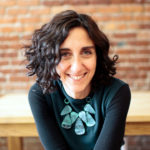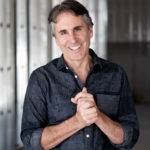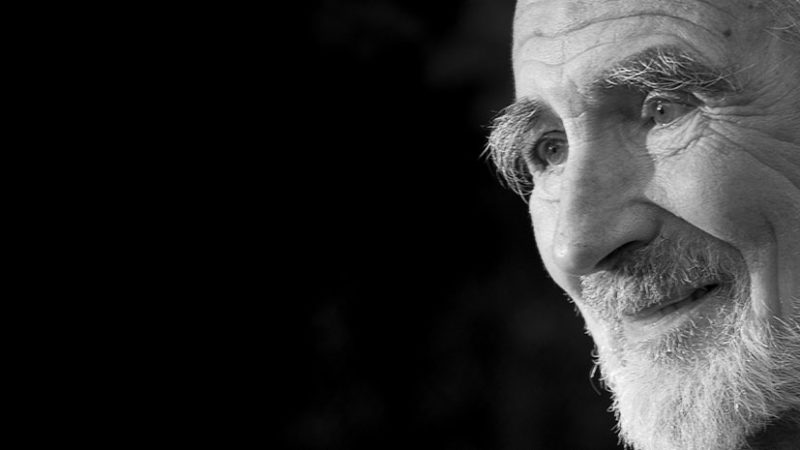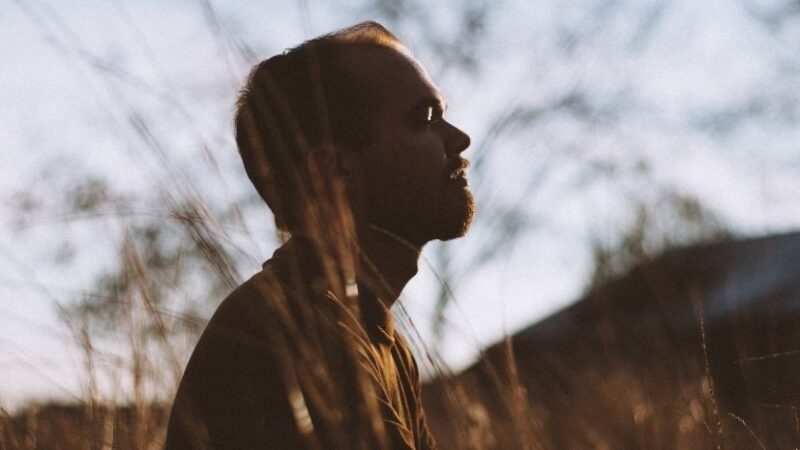-
E107: Becoming Okay Inside
Michael Singer — August 28, 2025
The fundamental spiritual question is not “How do I be okay?” It is “Why am I not okay?” Our ...
-
Andrew Holecek: What Reincarnates? | Part 2
Andrew Holecek — August 26, 2025
Join Tami Simon and Andrew Holecek for the second half of their exploration of reincarnation. Here,...
-
Honey Tasting Meditation: Build Your Relationship with Sweetness
There is a saying that goes “hurt people hurt people.” I believe this to be true. We have been...
Written by:
Amy Burtaine, Michelle Cassandra Johnson
-
Many Voices, One Journey
The Sounds True Blog
Insights, reflections, and practices from Sounds True teachers, authors, staff, and more. Have a look—to find some inspiration and wisdom for uplifting your day.
Standing Together, and Stepping Up
Written By:
Tami Simon -
The Michael Singer Podcast
Your Highest Intention: Self-Realization
Michael Singer discusses intention—"perhaps the deepest thing we can talk about"—and the path to self-realization.
This Week:
Andrew Holecek: What Reincarnates? | Part 2 -
Many Voices, One Journey
The Sounds True Blog
Insights, reflections, and practices from Sounds True teachers, authors, staff, and more. Have a look—to find some inspiration and wisdom for uplifting your day.
Take Your Inner Child on Playdates
Written By:
Megan Sherer
600 Podcasts and Counting...
Subscribe to Insights at the Edge to hear all of Tami's interviews (transcripts available, too!), featuring Eckhart Tolle, Caroline Myss, Tara Brach, Jack Kornfield, Adyashanti, and many more.
Most Recent
David Steindl-Rast: Grateful Living in the ‘Double R...
Brother David Steindl-Rast is an internationally renowned author, lecturer, and pivotal member of the monastic renewal movement. A monk in the Benedictine tradition, Brother David is also an expert in Zen Buddhism and a tireless advocate for building bridges between Eastern and Western religious traditions. With Sounds True, Brother David created the audio program The Grateful Heart. In this episode of Insights at the Edge, Tami Simon and Brother David talk about the innate longing that drives spiritual study and is the impetus for seeking out a monastic life. Tami and Brother David explore the concept of the “Double Realm” that lies beyond standard concepts of time and existence, as well as how practicing gratitude can be a doorway to that realm. Finally, Brother David considers the future of religion and spirituality as he enters his nineties.(61 minutes)
3 Ways to Overcome Overwhelm This Holiday Season
The holiday season can be a joyous and fun time for many, and a sad or lonely time for others. But regardless of how this season sits, it is almost always a time of increased stress and overwhelm.
With these simple steps, you can cut down your own stress and find peace of mind.
Get crystal clear on what is MOST important to you
With clarity about your values, you will be able to decide what you are going to say ‘yes’ to and what you are going to say ‘no’ to with greater ease and grace. If you want to feel peaceful? Say no to the four parties on one day. If you want to feel energetic? Put your phone down and go to bed on time. If you want to keep your immune system healthy? Go easy on the sugar and alcohol and make healthy food choices.
Volunteer!
Studies show that volunteering is good for your own stress level—as long as your motivation is for the benefit of others and not yourself. Find an organization you think is doing great work and carve out some time to help.
Set clear boundaries
With the onslaught of parties and events, visitors and responsibilities, it’s easy to get into more than we can reasonably handle. Don’t be afraid to say ‘no.’ My favorite tip for this is to tell people, when they ask me for something, is to say that “I’m not 100% sure if that can work for me; I’ll send you an email by tomorrow end of day to let you know.” That gives you a chance to actually consider whether it is something you really want to do, and also makes it a little easier to let people down gently.
 Dr. Samantha Brody, author of Overcoming Overwhelm, is a naturopathic physician and acupuncturist and founder of Evergreen Natural Health Center in Portland, Oregon. Licensed as a primary care provider with extensive training and experience in both complementary and Western medicine, she has worked with over 30,000 patients and clients in the past twenty years. Her mission is to empower people to address the stress in their lives and help them to make changes that are in alignment with their personal health goals and values. She holds a doctoral degree in naturopathic medicine and a master’s degree in oriental medicine from the National University of Natural Medicine. She is a sought-after international speaker who educates lay and professional audiences on the issues of stress and health. Dr. Samantha writes for a variety of publications and has been quoted extensively in books and media outlets including the Los Angeles Times, Wall Street Journal, HuffPost, and Shape. Learn more at drsamantha.com.
Dr. Samantha Brody, author of Overcoming Overwhelm, is a naturopathic physician and acupuncturist and founder of Evergreen Natural Health Center in Portland, Oregon. Licensed as a primary care provider with extensive training and experience in both complementary and Western medicine, she has worked with over 30,000 patients and clients in the past twenty years. Her mission is to empower people to address the stress in their lives and help them to make changes that are in alignment with their personal health goals and values. She holds a doctoral degree in naturopathic medicine and a master’s degree in oriental medicine from the National University of Natural Medicine. She is a sought-after international speaker who educates lay and professional audiences on the issues of stress and health. Dr. Samantha writes for a variety of publications and has been quoted extensively in books and media outlets including the Los Angeles Times, Wall Street Journal, HuffPost, and Shape. Learn more at drsamantha.com.
The community here at Sounds True wishes you a lovely holiday season! We are happy to collaborate with some of our Sounds True authors to offer you wisdom and practices as we move into this time together; please enjoy this blog series for your holiday season.
To help encourage you and your loved ones to explore new possibilities this holiday season, we’re offering 40% off nearly all of our programs, books, and courses sitewide. May you find the wisdom to light your way.
3 Ways To Be Present This Holiday Season
Holidays are a mixed blessing … they’re times when we take a pause from our daily routines and share more personal time with family and friends—some who we love unconditionally, and those that we love “almost” unconditionally (as long as we don’t talk about politics, the environment, the world, etc.).
Here are a few easy suggestions to help show up in all holiday situations, while maintaining full presence and a sense of calm.
Seek Moments of Stillness
Look ahead to your holiday social events, then plan for intermittent moments to be by yourself for creating stillness, physically and mentally, away from the hustle and bustle of family activities (or the TV). It’s easier than you think, especially if you are truthful about its importance for your health with those around you. If they are curious what it does for you, encourage them to try it too. And after, be curious about their experience as a conversation-starter when you’re together again.
Seek Moments of Silliness
Calm is not easy when our mind is preoccupied and struggling with the chaos often found during the holidays. Luckily the human species is bestowed with the gift of humor and light-heartedness, which research shows is capable of overriding the mind’s obsessive or compulsive tendencies to overwhelm our emotions, and take us out of the present. Engaging in a bit of silliness is literally child’s play and an elixir to bring us back to the present that helps strengthen connection and community.
Breathe Slow and Soft
Awareness of breath is one of the most common techniques for staying present in our “moments” during the holidays. By simply making the sound of our breath soft and the breath’s rhythm slow, we create a more naturally conscious state of being that stimulates our body’s parasympathetic response. This releases the tension and stress our sympathetic nervous system naturally creates during times of anxiety or distress. Remembering this during the upcoming season is truly the best gift you can give!
 Peter Sterios, author of Gravity and Grace, is a popular yoga teacher and trainer with over four decades experience. He’s the founder of LEVITYoGA™ and MANDUKA™, as well as KarmaNICA™, a charitable organization for underprivileged children in rural Nicaragua. Sterios taught yoga at the White House for Michelle Obama’s anti-obesity initiatives for three years, and in 2018 he was invited to the Pentagon to share yoga’s therapeutic effects with the US Marine Corps. He resides in San Luis Obispo, CA. For more, visit LEVITYoGA.com.
Peter Sterios, author of Gravity and Grace, is a popular yoga teacher and trainer with over four decades experience. He’s the founder of LEVITYoGA™ and MANDUKA™, as well as KarmaNICA™, a charitable organization for underprivileged children in rural Nicaragua. Sterios taught yoga at the White House for Michelle Obama’s anti-obesity initiatives for three years, and in 2018 he was invited to the Pentagon to share yoga’s therapeutic effects with the US Marine Corps. He resides in San Luis Obispo, CA. For more, visit LEVITYoGA.com.
The community here at Sounds True wishes you a lovely holiday season! We are happy to collaborate with some of our Sounds True authors to offer you wisdom and practices as we move into this time together; please enjoy this blog series for your holiday season.
To help encourage you and your loved ones to explore new possibilities this holiday season, we’re offering 40% off nearly all of our programs, books, and courses sitewide. May you find the wisdom to light your way.
Customer Favorites
Sera Beak: Bringing Your Soul Home
Sera Beak is a scholar of comparative religions who has conferred with shamans, monks, and mystics the world over. She is the author of The Red Book: A Deliciously Unorthodox Approach to Igniting Your Divine Spark and Red Hot and Holy: A Heretic’s Love Story. With Sounds True, she has most recently published Redvelations: A Soul’s Journey to Becoming Human. In this episode of Insights at the Edge, Tami Simon speaks with Sera about the fragmentation of the soul and the journey that Sera undertook when she realized that pieces of her own soul had gone missing. They discuss the passage of core wounds between lifetimes and Sera’s experiences of remembering and reclaiming Sarah, the forgotten daughter of Jesus and Mary Magdalene, as a lost part of her own soul. Sera describes how she reckoned with her experiences—first wanting to not share them with anyone else, and then growing into the realization that to not do so would be to abandon a key part of her essential self. Finally, Tami and Sera talk about how to embody true, divine love and how this eternal love transmits through “the organic lineage” of all life. (61 minutes)
Judith Blackstone: Embodied Realization
Tami Simon speaks with Dr. Judith Blackstone, a licensed clinical psychotherapist in New York and an innovative teacher in contemporary spirituality. With Sounds True, she has published a book called The Intimate Life: Awakening to the Spiritual Essence in Yourself and Others, and a six-session audio learning course called The Realization Process: A Step-by-Step Guide to Embodied Spiritual Awakening, in which she teaches her powerful method for attuning to fundamental (or non-dual) consciousness. In this episode, Tami has an illuminating conversation with Judith about two introductory ways of tapping into fundamental consciousness, how we can relate to others “core to core,” and the role of the body in the fullness of realization. (53 minutes)
Sounds True Radio
Come on by and take a listen to Sounds True Radio! – http://www.soundstrue.com/radio/
Our free, 24-hour-a-day, streaming radio station offers music for yoga, meditation, relaxation, and inspiration; audio teachings from bestselling and highly respected authors; and insightful and provocative interviews with spiritual teachers and authors on the cutting edge. We also have a new channel which provides selections from many of our new releases. Sounds True Radio is an easy (and free!) way to connect with our authors and to immerse yourself in heart-opening and life-changing wisdom. Through the station, you can also access our our acclaimed Insights at the Edge podcast.
Whether you’re interested in mindfulness, personal growth, emotional healing, awakening and the spiritual journey, creativity, meditation, mantra, sacred chant, brainwave and other healing music, kirtan, or world music of all kinds, you’ll be sure to find something to inspire and open you to the preciousness of the journey that we share together. We look forward to connecting with you at Sounds True Radio soon!





